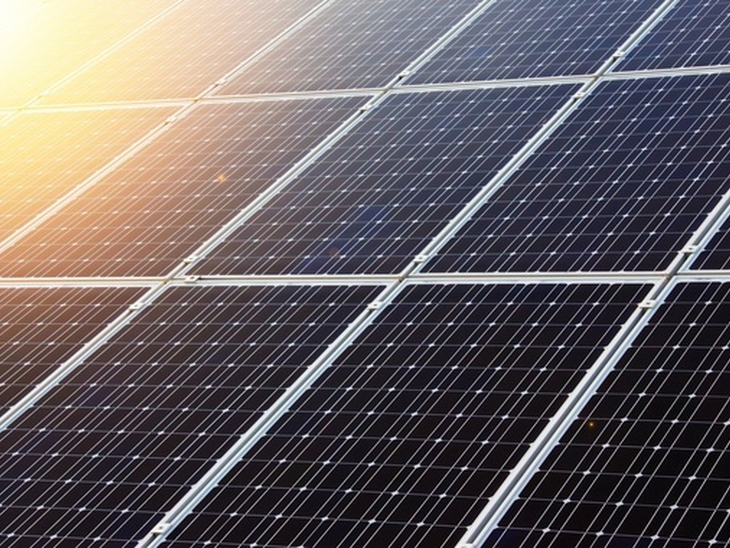
 Solar Energy
Solar Energy
T&B Petroleum/Press Release

An unprecedented survey by the Brazilian Solar Photovoltaic Energy Association (ABSOLAR) points out that 2020 was a year of new records for the solar photovoltaic sector in Brazil. The segment attracted more than R$ 13 billion in investments in 2020, including large plants and generation systems on roofs, facades and small plots. The result represents a growth of 52% in relation to the investments accumulated in the country since 2012.
According to the entity, the 2020 investments created more than 86 thousand new jobs in Brazil, spread across all regions of the national territory. Since 2012, the photovoltaic solar source has generated over R$ 38 billion in business and generated more than 224 thousand jobs. In 2020, hiring increased 62% in relation to the jobs accumulated in the country since 2012.
In terms of clean and renewable electricity generation capacity, Brazil currently has 7.5 gigawatts (GW) of operational power from the photovoltaic solar source, adding the large plants (centralized generation) with the small and medium systems installed in roofs, facades and land (distributed generation), which represents more than half of the installed capacity at the Itaipu hydroelectric plant, the largest in Brazil and the second largest on the planet. According to ABSOLAR, the country jumped from 4.6 GW at the end of 2019 to 7.5 GW at the end of 2020, growth of 64%, even in the midst of a challenging year of global pandemic.
In 2020, the photovoltaic solar market provided more than R $ 3.9 billion in collection to public coffers, an increase of 52% in relation to the total collected in the period between 2012 and 2019.
In the centralized generation segment, Brazil has 3.1 gigawatts (GW) of installed power in solar photovoltaic plants, equivalent to 1.6% of the country's electrical matrix. In 2019, solar was the most competitive among renewable sources in the two New Energy Auctions, A-4 and A-6, with average prices below US$ 21.00 / MWh. In 2020, the Federal Government did not hold any new renewable energy auctions due to the pandemic.
Currently, large solar plants are the seventh largest source of generation in Brazil, with projects in operation in nine Brazilian states, in the Northeast (Bahia, Ceará, Paraíba, Pernambuco, Piauí and Rio Grande do Norte), Southeast (Minas Gerais and São Paulo) and Midwest (Tocantins). The accumulated investments in this segment exceed R$ 15 billion.
By adding the installed capacities in the distributed generation and centralized generation segments, the photovoltaic solar source occupies the sixth place in the Brazilian electric matrix, behind hydroelectric, wind, biomass, natural gas thermoelectric and diesel and other fossil fuels. The solar source already represents an installed power 32% greater than the sum of all coal-fired power plants and nuclear plants, which totals 5.6 GW.
In the distributed generation segment, there are 4.4 GW of photovoltaic solar source, which represent R $ 20 billion in investments accumulated since 2012, spread across the five regions of Brazil. Solar technology is currently used in 99.9% of all distributed generation connections in the country, leading the segment by far.
Brazil has more than 350 thousand solar photovoltaic systems connected to the grid, bringing savings and sustainability to approximately 450 thousand consumer units. It is present in all Brazilian states, being the 5 largest in installed power, respectively: Minas Gerais, Rio Grande do Sul, São Paulo, Mato Grosso and Paraná.
“Although it has advanced in recent years, Brazil - holder of one of the best solar resources on the planet - still has a solar market still small and far below its potential. There are more than 85 million electricity consumers in the country, but only 0.5% use the sun to produce electricity ”, says Ronaldo Koloszuk, chairman of ABSOLAR's Board of Directors.
According to the CEO of ABSOLAR, Rodrigo Sauaia, solar energy will play an increasingly strategic role in reaching the goals of social, economic and environmental development in Brazil, including helping in the sustainable recovery of the economy, as it is the renewable source that generates more jobs and income in the world.
“Photovoltaic solar energy reduces the electricity cost of the population, increases the competitiveness of companies and eases the budget of the government, benefiting small, medium and large consumers in the country. The photovoltaic solar sector works to accelerate the renewable expansion of the electric matrix at competitive prices. We are the cheapest renewable source in Brazil and we will help the country to grow with increasing competitiveness and sustainability ”, points out Sauaia.
Contact us